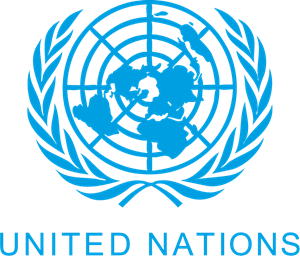
Refugee Community Based Protection (CBP) Assistant
United Nations
- Zarzis, Médenine
- CDI
- Temps-plein
- Assist UNHCR in disseminating accessible information on available services and their providers, on the rights and duties of refugees and asylum-seekers in Tunisia;
- Promote and support community mobilization for organizing social, cultural and recreational events among refugee and host communities;
- Provide information and referrals to refugees and asylum seekers in need of UNHCR’s humanitarian support and ensure proper feedback is provided by UNHCR to forcibly displaced persons;
- Assist UNHCR in organizing participatory activities and awareness-raising sessions with persons of different age groups, gender and background;
- Assist in identifying opportunities for mainstreaming persons of concern into available national services and contribute to developing communication strategies with persons of concern to access such services;
- Assist in mapping community-based protection structures and network and support in establishing a referral mechanisms with such network for vulnerable refugees and asylum seekers.
- In coordination with the supervisor, lead the collection of data by the outreach volunteers on specific protection related thematic.
- Regularly update and share information related to areas of work, utilizing agreed data collection methods to identify gaps, assess trends and developments;
- Contribute to the planning, monitoring and evaluation of any further community outreach activities;
- Contribute age, gender and diversity mainstreaming in all of UNHCR Tunisia Republic’s activities, paying attention to and flagging to the office the specific protection needs of women and men, children, youth and older persons, persons with disabilities, marginalized groups; Identify and recommend which individuals or groups to prioritize for counselling and field visits;
- Performs other relevant duties as required by the supervisor;Requirements:in communication, community development, community engagement, crisis and emergency response is an asset;
- Experience working in the UN or other international development organization is an asset
- Refugee status in Tunisia is a requirement
- Advanced oral and written skills; excellent drafting, formulation, reporting skills;
- Accuracy and professionalism in document production and editing; •Excellent interpersonal skills; culturally and socially sensitive; ability to work inclusively and collaboratively with a range of partners, including grassroots community members, religious and youth organizations, and authorities at different levels; familiarity with tools and approaches of communications for development.
- Ability to work and adapt professionally and effectively in a challenging environment; ability to work effectively in a multicultural team of international and national personnel;
- Solid overall computer literacy, including proficiency in various MS Office applications (Excel, Word, etc.) and email/internet; familiarity with database management; and office technology equipment.
- Self-motivated; ability to work with minimum supervision; ability to work with tight deadlines.
- Sound security awareness;
- Have affinity with or interest in humanitarian work, volunteerism as a mechanism for durable development, and the UN System.
- Professionalism: discretion, political sensitivity, diplomacy and tact to deal with clients; ability to apply good judgement; ability to liaise and coordinate with a range of different actors;
- high degree of autonomy, personal initiative and ability to take ownership;
- ability to manage information objectively, accurately and confidentially; responsive and client-oriented;
- Integrity: demonstrate the values and ethical standards of the UN and UNHCR in daily activities and behaviors while acting without consideration of personal gains; take prompt action in cases of unprofessional or unethical behavior; does not abuse power or authority;
- Teamwork and respect for diversity : ability to establish and maintain effective partnerships and harmonious working relations in a multi-cultural, multi- ethnic, mixed-gender environment with sensitivity and respect for diversity; sensitivity and adaptability to culture, gender, religion, nationality and age;
- Communication proven interpersonal skills; capacity to transfer information and knowledge to a wide range of different target groups;
- Flexibility: adaptability, willingness to travel within the area of operations as necessary;
- Genuine commitment towards the principles of voluntary engagement, which includes solidarity, compassion, reciprocity and self-reliance; and commitment towards UNHCR’s mission and vision, as well as to the UN Core Values.
- Social work
- Legal affairs